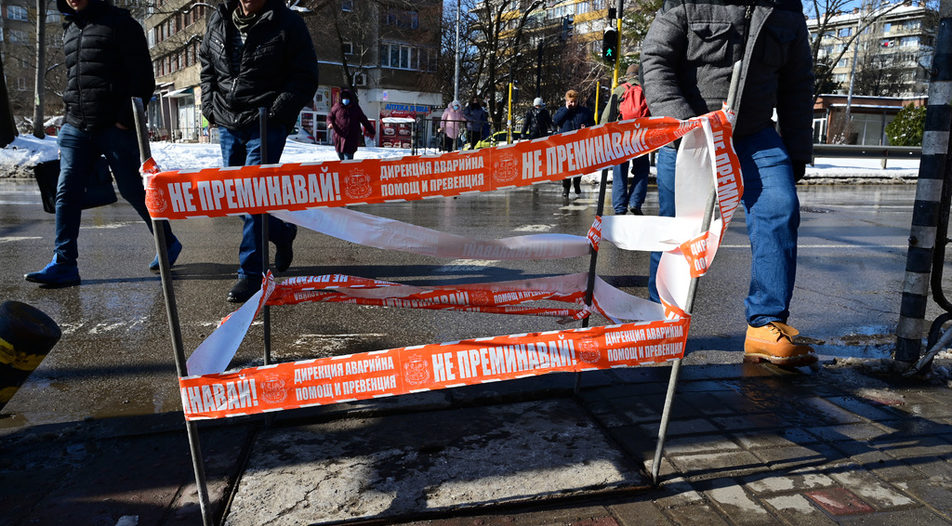Over the snowy weekend, which reminded everybody that it is still February, Bulgarians engaged in one of their favourite annual feuds - for or against Lukovmarch, an ultranationalist rally in memory of a controversial interwar general. On Monday, public anger focused on the death of a 16-year-old boy who was electrocuted on a central Sofian boulevard. The incident happened as he stepped with a wet shoe on an insecure live wire emanating from a manhole in the middle of a sidewalk. Worse still, after a day of passing the blame, it is still unclear who is responsible for the faulty cableworks - the municipality, the nearby hospital, the electric company or a nearby food stall - which deservedly causes public outrage. In other news:
Most students return to school, restaurants set to open despite rising cases
Two thirds of students are back at school after health and educational authorities allowed face-to-face classes to resume on Monday, Minister of Education Krasimir Valchev announced. This, despite health authorities reporting a 20 percent week-to-week increase in the number of recorded new infections and a second week of increased deaths - 297 compared to 283 in the first week of February. Nevertheless, Prime Minister Boyko Borissov is apparently determined to allow restaurants and bars to reopen as soon as possible, telling Health Minister Kostadin Angelov: "You must open restaurants on 1 March" in a Facebook Live broadcast on the weekend.
Dogan, Kovachki receive state subsidies yet again to keep thermal power plants at the ready
The Bulgarian Electricity System Regulator, a state agency responsible for the coordination and control of the Bulgarian energy system, restarted its "cold reserve" payments for government-friendly oligarchs Ahmed Dogan and Hristo Kovachki, Capital weekly wrote on Monday. In a gesture designed to cut ties to notorious oligarchs, Mr Borissov announced last summer that the government would cease payments to the two owners of small thermal power plants (TPPs). They receive state subsidies to maintain the TPPs in constant readiness over the winter in case primary energy suppliers fail to produce enough heat. Now, with the same TPPs winning portions of a 1 million euro public bid for the "cold reserve" in February, it seems like things are back to normal.
Public sector salaries outstrip private ones in 2020
Despite a crisis-ridden 2020, the average salary in Bulgaria has grown to 733 euro, National Statistics Institute data showed on Monday. Unlike previous years, however, the driving force behind the increase is a 13,1 percent inflation of public sector wages rather than growth of salaries in private firms, which stands at 8,1 percent compared to 2019. This translates into an average salary of 813 euro in the public sphere and 707 euro in the private sphere as of December 2020. The gap is mainly caused by the shockwave increase of salaries of administration, teachers, police and medics during the summer of 2020 anti-government protests and the worsening of the pandemic in October-November.
Over the snowy weekend, which reminded everybody that it is still February, Bulgarians engaged in one of their favourite annual feuds - for or against Lukovmarch, an ultranationalist rally in memory of a controversial interwar general. On Monday, public anger focused on the death of a 16-year-old boy who was electrocuted on a central Sofian boulevard. The incident happened as he stepped with a wet shoe on an insecure live wire emanating from a manhole in the middle of a sidewalk. Worse still, after a day of passing the blame, it is still unclear who is responsible for the faulty cableworks - the municipality, the nearby hospital, the electric company or a nearby food stall - which deservedly causes public outrage. In other news:












